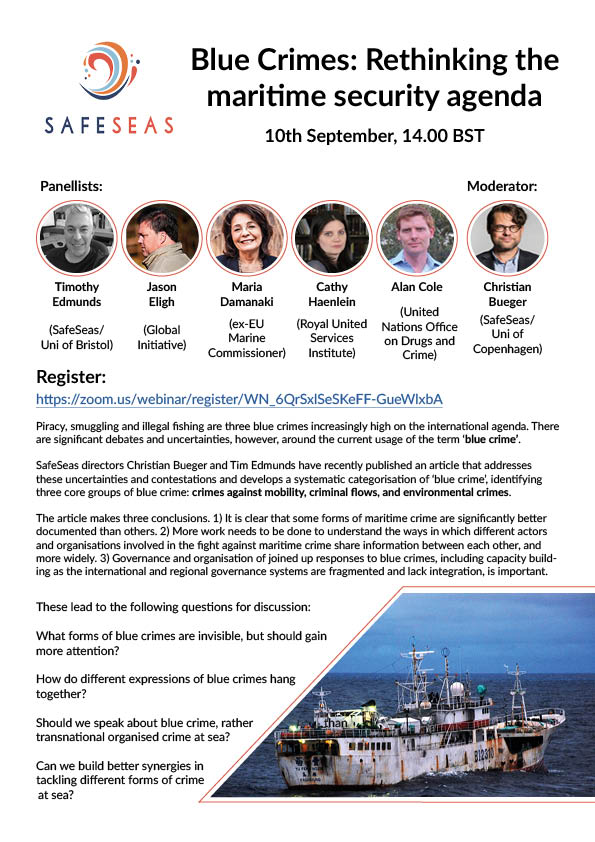10th September, 14.00-15.30 BST

Presenter & Panellist
Timothy Edmunds (SafeSeas/Uni of Bristol)
Panellists
Jason Eligh (Global Initiative)
Maria Damanaki (ex-EU Marine Commissioner)
Cathy Haenlein (RUSI)
Alan Cole (UNODC GMCP)
Register:
https://zoom.us/webinar/register/WN_6QrSxlSeSKeFF-GueWlxbA
Piracy, smuggling and illegal fishing are three blue crimes increasingly high on the international agenda. Such crimes have different expressions across the world’s maritime regions and affect human lives, political stability and economic interests in different ways, ranging from their impact on coastal communities to international shipping and even national security.
There are significant debates and uncertainties, however, around the current usage of the term ‘blue crime’. These centre around the meaning, scope and reach of the concept including, what illicit activities it comprises, and how these can be meaningfully structured in ways that that both recognise the diverse nature of maritime crime yet also provide a basis for an integrated response to it.
SafeSeas directors Christian Bueger and Tim Edmunds have recently published an article that addresses these uncertainties and contestations and develops a systematic categorisation of ‘blue crime’. Through this categorisation, the article identifies three core groups of blue crime: crimes against mobility, criminal flows, and environmental crimes.
Specifically, the article highlights three consequences: First, it is clear that some forms of maritime crime are significantly better documented than others. Second, it implies that more work needs to be done to understand the ways in which different actors and organisations involved in the fight against maritime crime share information between each other, and more widely.
Finally, it points to the importance of the governance and organisation of joined up responses to blue crimes, including capacity building as the international and regional governance systems are fragmented and lack integration.
These leads to the below guiding questions for the discussion:
- What forms of blue crimes are invisible, but should gain more attention?
- How do blue crimes hang together?
- Should we speak about blue crime, rather than transnational organised crime at sea?
- Can we build better synergies in tackling different forms of crime at sea?
